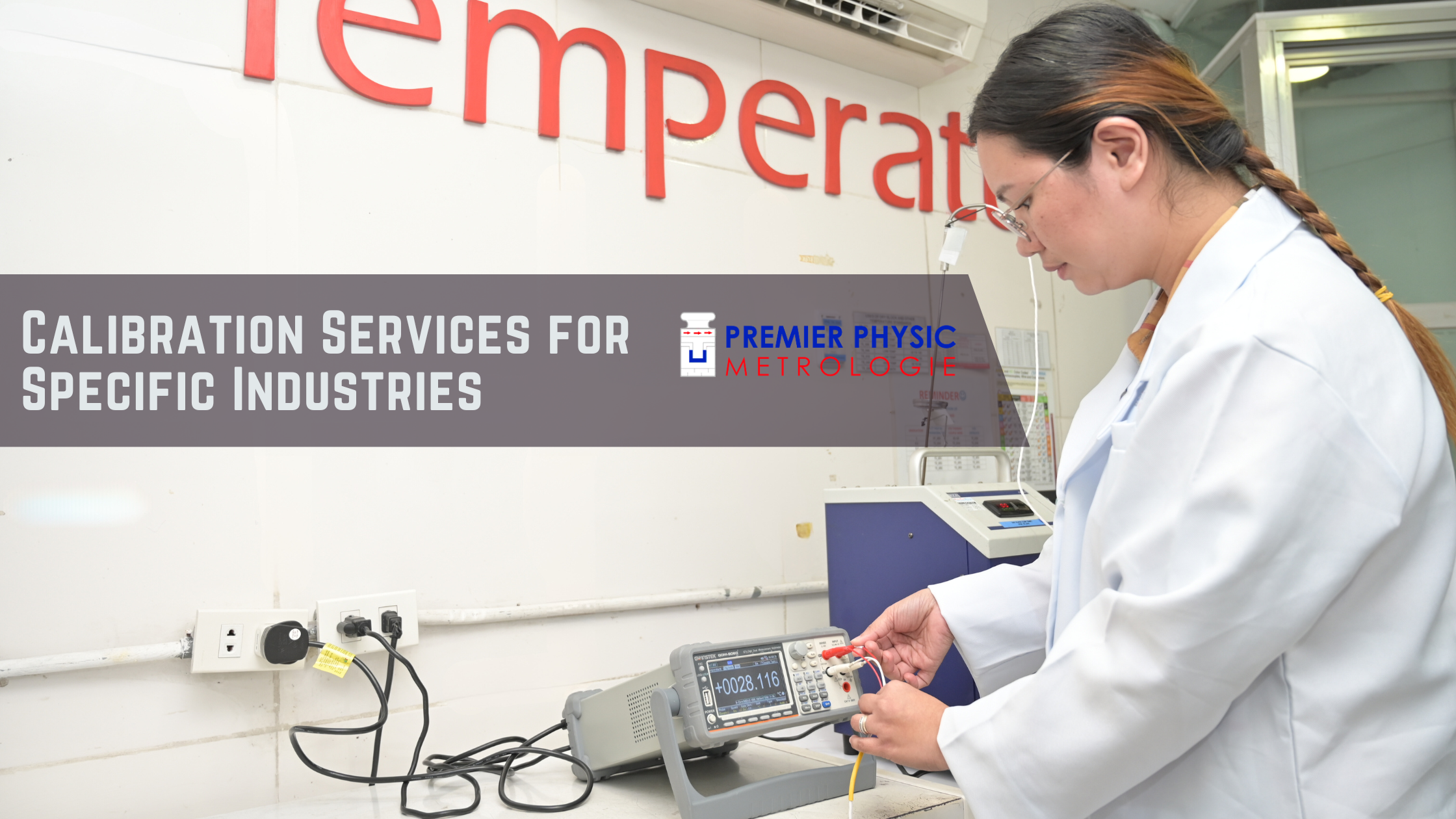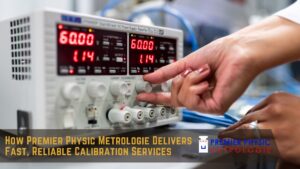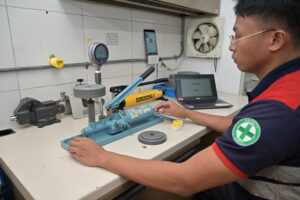Calibration services play a crucial role in ensuring the accuracy and reliability of various instruments and equipment across different industries. From aerospace and defense to healthcare and automotive, precise measurements are vital for optimal performance and compliance with industry standards.
Introduction
In today’s dynamic and technologically advanced world, the need for accurate measurements has become paramount across diverse industries. Calibration services have emerged as a fundamental aspect of maintaining precision in instruments and equipment. This article delves into the significance of calibration services for specific industries, exploring the benefits, types, and challenges associated with this crucial process.
What is Calibration?
Calibration is the process of adjusting and validating the accuracy of measuring instruments and equipment. The primary purpose is to ensure that these instruments provide precise and reliable data, meeting the required standards and regulations. Instruments such as pressure gauges, thermometers, and testing machines undergo calibration to guarantee accurate readings.
Key Industries Requiring Calibration
Aerospace and Defense
In the aerospace and defense sector, precision is non-negotiable. Calibration of equipment like navigation instruments and testing devices is essential to guarantee the safety and performance of aircraft and military systems.
Healthcare and Medical Devices
Calibration is critical in the healthcare industry, especially for medical devices like blood pressure monitors and diagnostic equipment. Accurate measurements are imperative for correct diagnoses and patient care.
Automotive
The automotive industry relies on calibration for various components, from engine sensors to safety systems. Ensuring accurate measurements is vital for vehicle performance and compliance with environmental regulations.
Energy and Utilities
In the energy sector, calibration of instruments such as flow meters and pressure sensors is crucial for efficient energy production and distribution. Accurate measurements contribute to optimal operation and prevent costly errors.
Benefits of Calibration Services
Accuracy and Precision
The primary benefit of calibration services is the assurance of accurate and precise measurements. This is indispensable in industries where even minor discrepancies can have significant consequences.
Compliance with Standards and Regulations
Many industries are subject to strict regulations and standards. Calibration ensures that equipment meets these requirements, preventing legal issues and ensuring the safety of operations.
Equipment Longevity
Regular calibration contributes to the longevity of instruments and equipment. By identifying and rectifying issues promptly, calibration helps prevent premature wear and damage.
Types of Calibration Services
Calibration services can be categorized into different types based on the location and provider.
On-site Calibration
Some industries prefer on-site calibration, where the calibration service provider travels to the client’s location. This option is convenient for large equipment or when minimal downtime is essential.
In-house Calibration
Certain industries invest in in-house calibration facilities. This allows for more control over the calibration process and immediate adjustments when needed.
Third-Party Calibration Services
Outsourcing calibration to a third-party provider is a common practice. This option offers specialized expertise and often proves cost-effective for many industries.
Importance of Regular Calibration
Avoiding Equipment Downtime
Regular calibration helps identify potential issues before they cause equipment failure, minimizing downtime and production disruptions.
Ensuring Safety and Reliability
Calibration is crucial for maintaining the safety and reliability of equipment. In industries like healthcare and aerospace, the consequences of inaccurate measurements can be severe.
Meeting Industry Standards
Adherence to industry standards is a priority for many businesses. Calibration ensures that equipment meets or exceeds these standards, enhancing credibility and trust.
Calibration Process Overview
The calibration process involves several key steps:
Initial Assessment
The calibration process begins with an assessment of the equipment’s current state. This includes checking for wear, damage, or any deviations from standard measurements.
Adjustment and Calibration
Based on the assessment, adjustments are made to bring the equipment back to its accurate state. Calibration is performed using precise standards and reference instruments.
Final Documentation
A comprehensive report detailing the calibration process, adjustments made, and the equipment’s final state is provided. This documentation is crucial for quality assurance and compliance purposes.
Choosing the Right Calibration Service Provider
Selecting the right calibration service provider is essential for ensuring accurate and reliable calibration. Consider the following factors:
Accreditation and Certification
Choose a provider with relevant accreditations and certifications, ensuring they meet industry standards for calibration services.
Experience and Expertise
An experienced provider with expertise in your specific industry is more likely to deliver accurate and reliable calibration services.
Cost-Effectiveness
While cost is a factor, prioritize the quality of service over the price. A reliable calibration service provider may prove more cost-effective in the long run.
Common Calibration Equipment
Calibration services cover a wide range of equipment, including:
Measuring Instruments
Instruments such as calipers, micrometers, and gauges require regular calibration to ensure precise measurements.
Temperature and Pressure Devices
Calibration of thermometers, pressure gauges, and other devices is crucial in industries like pharmaceuticals and manufacturing.
Testing Machines
Equipment used for material testing, quality control, and research undergoes calibration to maintain accuracy and reliability.
Challenges in Calibration
Despite its importance, calibration comes with its set of challenges:
Environmental Factors
Changes in temperature, humidity, and other environmental factors can impact the accuracy of calibration.
Complex Equipment
Calibrating complex machinery with intricate components can be challenging and requires specialized expertise.
Changing Standards
As industry standards evolve, keeping calibration processes up-to-date becomes essential but can be challenging.
Emerging Technologies in Calibration
As technology advances, so does the field of calibration:
Automation and Robotics
Automation streamlines the calibration process, enhancing efficiency and reducing human error.
Data Analytics in Calibration
Analyzing calibration data provides insights into equipment performance, enabling proactive maintenance.
IoT Integration
Integration with the Internet of Things (IoT) allows real-time monitoring and remote calibration, improving accessibility.
Case Studies
Examining successful calibration case studies provides insights into the impact on industry performance:
Success Stories in Calibration
Instances where calibration significantly improved equipment performance and overall industry outcomes.
Impact on Industry Performance
Analyzing how calibration positively influences the efficiency and reliability of industrial operations.
Future Trends in Calibration Services
Anticipated trends in the calibration industry include:
Technological Advancements
Continued advancements in calibration technology, such as more accurate sensors and calibration equipment.
Industry-Specific Calibration Solutions
Tailored calibration solutions designed for specific industries, addressing unique challenges and requirements.
Conclusion
In conclusion, calibration services are indispensable across various industries to ensure accurate measurements, comply with standards, and enhance equipment longevity. Choosing the right calibration service provider and staying abreast of emerging technologies and trends are crucial for optimizing the benefits of calibration.
FAQs
- How often should calibration be performed?
- The frequency of calibration depends on the industry and the criticality of the equipment. Generally, an annual calibration is recommended.
- Can I perform calibration in-house?
- In-house calibration is possible, but it requires specialized knowledge and equipment. Many industries opt for third-party services for efficiency and accuracy.
- What happens if equipment is not calibrated regularly?
- Lack of regular calibration can lead to inaccurate measurements, compromising product quality, safety, and compliance with regulations.
- How does calibration impact product quality?
- Calibration ensures that measurements are precise, directly influencing the quality of products. Accurate measurements contribute to consistent and high-quality outputs.
- Are there industry-specific calibration standards?
- Yes, different industries have specific calibration standards to ensure compliance with their unique requirements and regulations.



